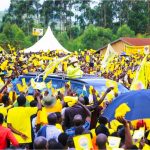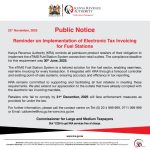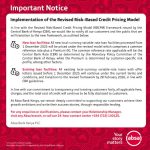Published on 02/08/2025
In the ever-evolving dynamics of Uganda’s political landscape, a new contender is drawing national attention—not through populist promises, but with a bold, well-reasoned roadmap that fuses technical expertise with grassroots realities. Eng. Jonard Asiimwe Akiiki, aspiring NRM Vice Chairperson for Western Uganda, has unveiled a visionary manifesto that transcends mere campaign rhetoric and lays out a comprehensive development framework.
At its core, Asiimwe’s manifesto is a technocratic blueprint grounded in Uganda’s Vision 2040, the National Development Plans (NDPIII and the incoming NDPIV), the Sustainable Development Goals (SDGs), and Agenda 2063 of the African Union. It is also deeply rooted in the NRM’s ideological pillars—patriotism, pan-Africanism, social-economic transformation, and democracy.

But what makes this manifesto not just timely, but transformational?

1. Technocratic Precision Meets Political Purpose
Eng. Asiimwe brings to the table a rare blend of engineering expertise and policy depth. This positions him as a strategic actor within the NRM Central Executive Committee—not just to represent the Western region, but to inject informed planning, data-driven governance, and innovative thinking into the party’s decision-making.
He does not simply promise change; he diagnoses Uganda’s socio-economic realities, evaluates ongoing programs, and proposes targeted interventions that enhance effectiveness and scalability.
2. Youth-Centric Development: From Numbers to Potential
Uganda’s demographic profile is both its greatest challenge and opportunity. With over 75% of the population under 30, Eng. Asiimwe argues that the key to unlocking national prosperity lies in deliberate investment in human capital.
His plan advocates for:
- Expanded technical and vocational education (TVET) access in rural Western districts.
- Support for youth-led enterprises and start-ups through incubation centers and cooperative financing.
- Digital skilling and literacy programs tailored for both formal and informal sectors.
In essence, Asiimwe sees the youth not as dependents on government handouts, but as catalysts for economic renewal—if properly equipped.
3. Turning Mineral Wealth into Regional Prosperity
Western Uganda hosts significant untapped mineral resources. Eng. Asiimwe’s manifesto highlights Uganda’s mineral potential exceeding $100 billion, yet warns against extractive models that export raw wealth without creating local value.
His approach calls for:
- Localized beneficiation policies to ensure processing happens within districts.
- Community-shared ownership models for mining projects to benefit locals.
- A framework for environmental sustainability and safety in exploration and mining zones.
This strategy not only aligns with global ESG (Environmental, Social, and Governance) standards but also ensures that natural wealth is used to uplift the people directly affected by its extraction.
4. Building on NRM’s Gains Without Complacency
Rather than criticize the status quo, Asiimwe’s manifesto emphasizes continuity with innovation. He acknowledges the gains made in infrastructure, security, and social services under the NRM government, yet stresses the need for deepened participation, especially at the sub-county and parish levels.
His plan promotes:
- Better service delivery monitoring mechanisms tied to citizen feedback.
- Data-driven resource allocation to reduce wastage and close equity gaps.
- Strengthening government outreach structures to ensure policies are people-driven.
5. A Leadership Model for the Future
More than a candidate, Eng. Asiimwe represents a shift in leadership values. His manifesto positions the Vice Chairperson role not merely as a political seat, but as a platform for developmental stewardship, strategic policy shaping, and transformative grassroots engagement.
By centering his campaign on strategy over slogans, and action over applause, he appeals to a new generation of Ugandans—especially in Western Uganda—who are hungry for relevance, inclusion, and results.
In an age where political manifestos are often filled with lofty ambitions and little implementation, “The Call for Strategic Action” sets a new bar. Eng. Jonard Asiimwe’s vision is not just about securing a position in the NRM hierarchy—it is about repositioning the Western region as a hub of productivity, innovation, and inclusive prosperity.
Should he succeed, he will not only elevate the voices of his constituents but could well reshape the strategic direction of the NRM itself.








